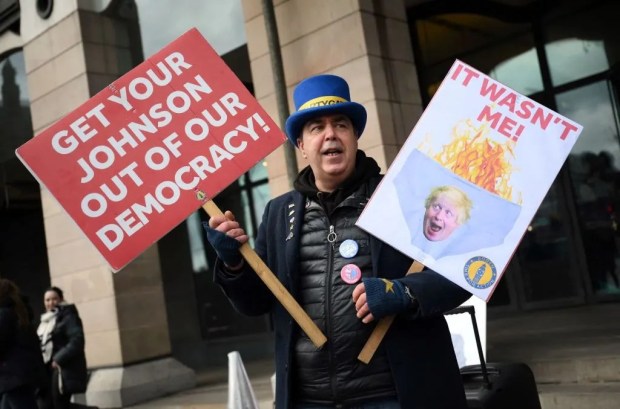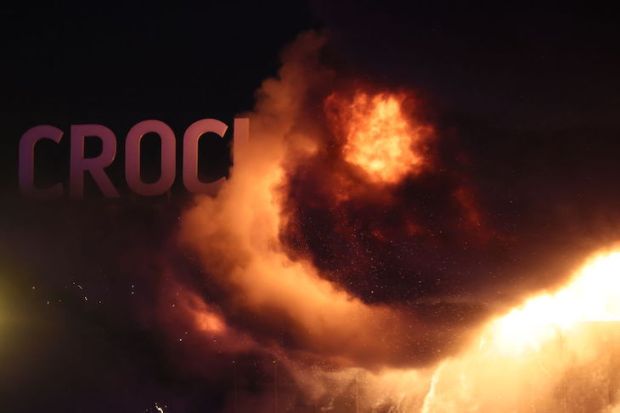After the EU’s behaviour last week, no one can be under any illusion about how nationalistic the pandemic has now become. Even before the EU attempted to halt vaccine supplies destined for Britain, the scrabble to secure enough doses had become reminiscent of the cold war. It wasn’t for nothing that the Russians named their vaccine ‘Sputnik’ – a reference to the satellite they launched in 1957 during the space race. Nor was it by chance that the Scottish government appeared to find it so difficult to say the word ‘Oxford’ when talking about the Oxford AstraZeneca vaccine.
But these sorts of political tiffs are just the beginning. Now that vaccinations are underway across the West, focus is beginning to shift onto future supply. The government’s announcement on Monday that they have secured 40 million more doses of the Valneva vaccine, which will be produced in Scotland, shows that Whitehall is clearly planning for a yearly national vaccination programme.
So far, the government has played its cards cleverly, not only shoring up a solid supply ahead of time but also using its production plan to strengthen the Union. The AstraZeneca factory in Wrexham, Wales is already producing a significant proportion of Britain’s vaccines and the decision to invest in the production of the Valneva vaccine in West Lothian is as political as it is logistical. Once Britain is vaccinated, fending off attempts by the SNP to win a second referendum will be top of Boris Johnson’s agenda. The success of Britain’s vaccination programme could play a key role in convincing sceptical Scots to stay in the UK. Using it to bring investment, as well as supplies, into Scotland is a canny move.
The UK now has a vaccine portfolio of 407 million doses ready to be injected into the arms of Brits over the next two years. That’s enough to vaccinate the British population at least four times over. For all the worthy, globalist sentiments expressed by the West early on in the pandemic, nations are increasingly fending for themselves.
This fact was not lost on South African president Cyril Ramaphosa who criticisedvaccine stockpiling at the World Economic Forum: ‘The rich countries of the world went out and acquired large doses of vaccines from the developers and manufacturers of these vaccines, and some countries have even gone beyond and acquired up to four times what their populations need.’
The British government seems to have been aware of this danger early on in the pandemic and it went to great lengths to ensure that its largest vaccine contract went to a pharmaceutical headquartered in the UK. Downing Street correctly predicted that nation would be pitted against nation as the pandemic rolled on.
While Ramaphosa is right to raise the ethics of stockpiling, the UK government has been wise to think strategically at a time when we’re still getting to grips with our position outside the EU. If the vaccination programme continues to go to plan, the government will soon be in a position to give any surplus vaccine doses to countries of its choosing, using its supply to shore up important bi-lateral relationships after Brexit.
As last week showed, the geopolitics of this pandemic can change overnight. And there could be substantial political capital in helping other countries with their vaccine supplies. The government has already mooted giving surplus vaccine doses to Ireland – a message which would hardly be lost on the EU. There is no reason why Britain can’t independently help other countries as well – outside of their donations to COVAX.
But top of Johnson’s agenda beyond Covid-19 is holding together Wales, Scotland, England and Northern Ireland. Indeed, he knows that as a Conservative Prime Minister he cannot let the Union disintegrate on his watch; to do so would destroy any hope of a political legacy. As the Valneva announcement shows, he’s learning to play the politics of this pandemic to his advantage.
Got something to add? Join the discussion and comment below.
Get 10 issues for just $10
Subscribe to The Spectator Australia today for the next 10 magazine issues, plus full online access, for just $10.




















Comments
Don't miss out
Join the conversation with other Spectator Australia readers. Subscribe to leave a comment.
SUBSCRIBEAlready a subscriber? Log in